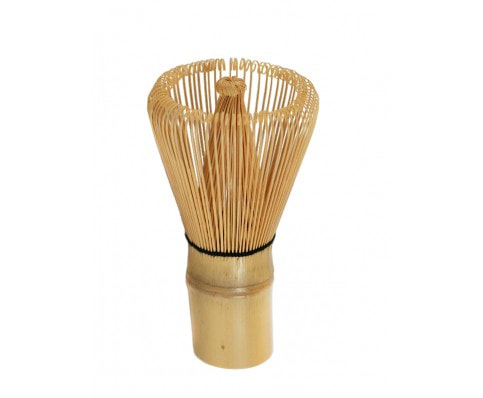
Play icon The triangle icon that indicates to play 6. One 2016 study found that drinking a beverage with around 25 mg of L-theanine like green tea can be extremely effective at reducing stress and increasing the neurotransmitter gamma-aminobutyric acid (GABA) in the brain. "Matcha powder contains L-theanine, an amino acid that has been shown to reduce stress," Gorham says. You won't feel as jittery as you might from a cup of joe. That's about the same energy benefit-or slightly less than-a cup of coffee, which has around 96 mg of caffeine per cup (given that different coffees have varying levels of caffeine).Ĥ. Black tea has 47 mg of caffeine per cup, and green tea has 28 mg, while matcha has a whopping 70 mg of caffeine. Matcha powder has about three times the amount of caffeine as alternative types of brewed teas, says Gorham. You'll get more energy than you would from other teas.
#MATCHA WHISK SET SKIN#
And vitamin B can help promote healthy skin cell turnover, according to a study from the Advances in Skin & Wound Care journal. The vitamin C in matcha stimulates collagen production when ingested, according to a 2017 study published in the journal Nutrients. Miyashita recommends trying matcha instead of coffee for a week if you have skin concerns. Matcha also contains a variety of vitamins, including vitamins A, B, C, E, and K, Miyashita says. "Matcha powder offers a megadose of these powerful antioxidants, which can help reduce cell damage and prevent chronic disease," explains nutritionist Jenna Gorham, RD, the founder of the RD Link. Green tea contains a type of antioxidant called catechins, as well as another group called polyphenols. It's loaded with antioxidants and vitamins. Jenna Gorham, RD, is the founder of the RD Link, which connects health food companies with nutrition experts. Meet the experts: Asako Miyashita, RDN, is a nutritionist based in New York and nutrition educator with 2nd.MD. If you want to know the best way to whip up some delicious matcha at home, scroll on.


These matcha benefits might convince you to switch from your daily cup of joe to a matcha latte. Eisai realized that drinking matcha before meditation would help maintain his concentration, and he brought the matcha to Japan," says Asako Miyashita, RDN, a nutritionist based in New York. "The most famous story is that Japanese Buddhist monk Myoan Eisai left for China to find green tea. These days, you can pretty much find it at any American coffee shop, but matcha’s rich history dates back to the 12th century and has been an important component of Japanese tea culture for more than 800 years. Because it's packed with a higher concentration of nutrients than you can get from the traditional variety, you can expect getting way more from matcha benefits. Matcha is a powder made from ground-up green tea leaves. It's a type of green tea, but not the loose-leaf kind you steep in hot water. As more and more people are trying to cut back on coffee, many are turning to matcha instead, a caffeine-rich alternative well known for its vibrant color.


 0 kommentar(er)
0 kommentar(er)
